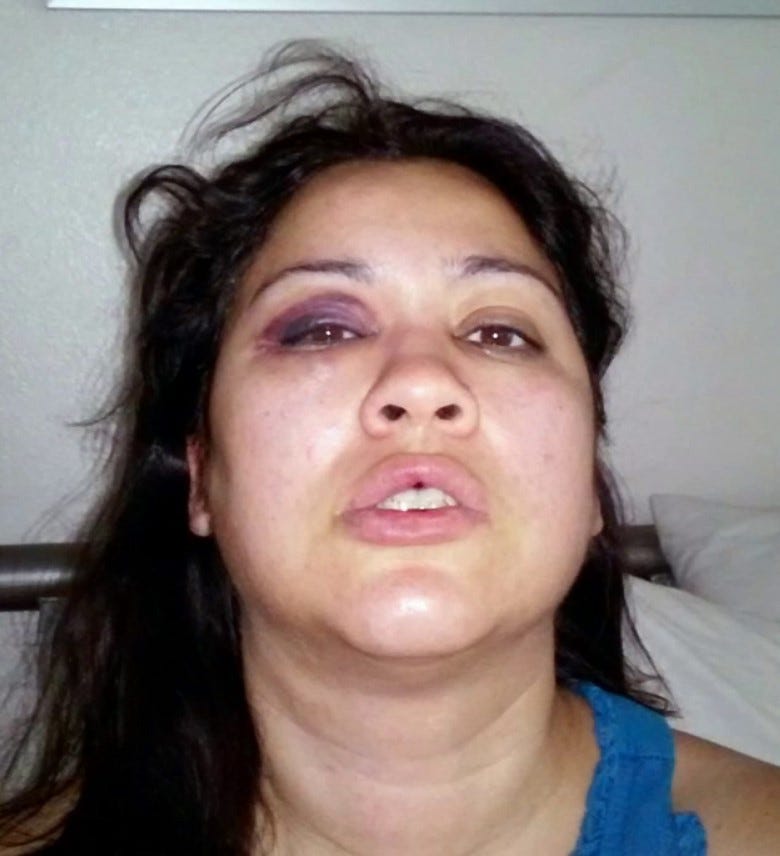Tragic Events Surrounding the Shooting of Bell Gardens Mayor
Written on
Chapter 1: The Incident
On September 30, 2014, a 19-year-old named Daniel Crespo Jr. made a distress call to the authorities, claiming that his mother, Lyvette Crespo, had shot his father, Bell Gardens Mayor Daniel Crespo, in an act of self-defense. When emergency responders arrived at their home in Bell Gardens, California, they found Daniel Crespo had suffered three gunshot wounds to the chest and was pronounced dead shortly thereafter.
In the aftermath, Lyvette and her children began to disclose a long history of abuse and trauma inflicted by Daniel Crespo. On that fateful day, a heated argument erupted between the couple, primarily revolving around Daniel's infidelity. Lyvette had reportedly been receiving harassing phone calls from his mistress, which intensified the conflict. Their marriage had deteriorated significantly, especially over the last couple of years, culminating in a physical confrontation that day.
With their son attempting to intervene, Daniel allegedly struck him multiple times. In response, Lyvette retrieved a 9mm handgun from a safe and shot Daniel. Initially, both Lyvette and her son were taken in for questioning by law enforcement, but no charges were filed immediately, as their injuries appeared to corroborate their account of self-defense.
When analyzing the circumstances leading to this tragic event, it becomes evident that the Crespo family's history was marked by decades of abuse. Daniel and Lyvette had been together since high school, marrying in the late 1980s. Reports suggest that Daniel's abusive behavior began long before the shooting, with a coroner’s report indicating threats made against the family. Lyvette had never formally reported the abuse, likely due to fear of further violence.
Section 1.1: The Aftermath
Following Daniel’s death, Lyvette's mother-in-law filed a civil wrongful death lawsuit. Friends and family were aware of Daniel's infidelities and his mistreatment of Lyvette, with some speculating that jealousy may have been a factor in the shooting. Daniel's brother, William, suggested that the act was premeditated, alleging that Lyvette had sufficient time to contemplate her actions before pulling the trigger.

Seven months after the incident, a grand jury indicted Lyvette for involuntary manslaughter. She pleaded not guilty, yet doubts about her status as a battered wife arose during the trial, despite testimonies from her children and Daniel's mistress regarding his abusive behavior. Text messages exchanged between the couple revealed a volatile relationship, with Lyvette expressing lethal intentions towards Daniel's mistress.
The prosecution raised concerns about whether deadly force was necessary, questioning why Lyvette chose to retrieve the gun instead of seeking alternative solutions. They argued that her actions indicated a conscious decision to kill rather than merely defend herself.
Chapter 2: Legal Proceedings
In October, negotiations for a plea deal began, which would have allowed Lyvette to avoid jail time. However, due to objections from Daniel's family, the initial offer was withdrawn. Ultimately, a plea deal was reached, where Lyvette pleaded guilty to voluntary manslaughter and was sentenced to 90 days in jail, five years of probation, and required to complete anger management classes and community service.
During sentencing, Judge Kathleen Kennedy noted that while both parties had their issues, Daniel's behavior was particularly cruel. She commented on the inevitability of tragedy given the circumstances, stating, "It was going to be you if it wasn’t him."
In 2017, Lyvette was released after serving less than six weeks, a decision met with outrage from Daniel's family, who deemed the sentence too lenient. This case highlighted the complexities of domestic violence and the legal system's struggle to address such deeply rooted issues.
Theories surrounding the events suggest that Lyvette may have been a victim of battered wife syndrome, feeling compelled to defend herself and her children after years of abuse. Additionally, societal expectations regarding gender roles may have played a role in her reluctance to report the abuse, showcasing the intricate dynamics at play in this tragic story.